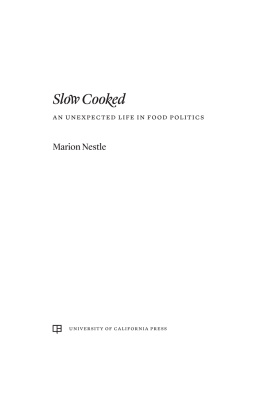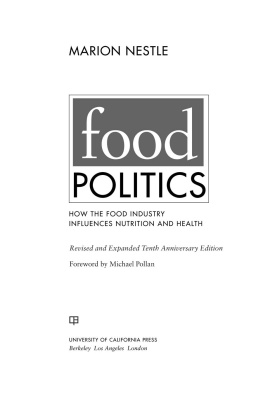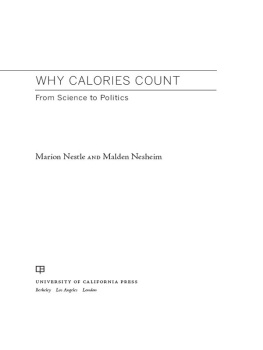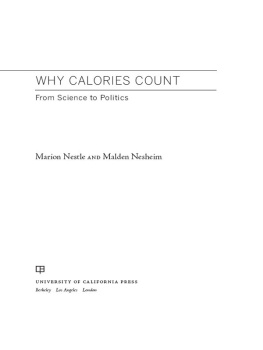Marion Nestle - Slow Cooked: An Unexpected Life in Food Politics
Here you can read online Marion Nestle - Slow Cooked: An Unexpected Life in Food Politics full text of the book (entire story) in english for free. Download pdf and epub, get meaning, cover and reviews about this ebook. year: 2022, publisher: University of California Press, genre: Non-fiction. Description of the work, (preface) as well as reviews are available. Best literature library LitArk.com created for fans of good reading and offers a wide selection of genres:
Romance novel
Science fiction
Adventure
Detective
Science
History
Home and family
Prose
Art
Politics
Computer
Non-fiction
Religion
Business
Children
Humor
Choose a favorite category and find really read worthwhile books. Enjoy immersion in the world of imagination, feel the emotions of the characters or learn something new for yourself, make an fascinating discovery.
- Book:Slow Cooked: An Unexpected Life in Food Politics
- Author:
- Publisher:University of California Press
- Genre:
- Year:2022
- Rating:5 / 5
- Favourites:Add to favourites
- Your mark:
Slow Cooked: An Unexpected Life in Food Politics: summary, description and annotation
We offer to read an annotation, description, summary or preface (depends on what the author of the book "Slow Cooked: An Unexpected Life in Food Politics" wrote himself). If you haven't found the necessary information about the book — write in the comments, we will try to find it.
Marion Nestle reflects on her late-in-life career as a world-renowned food politics expert, public health advocate, and a founder of the field of food studies after facing decades of low expectations.
In this engrossing memoir, Marion Nestle reflects on how she achieved late-in-life success as a leading advocate for healthier and more sustainable diets. Slow Cooked recounts of how she built an unparalleled career at a time when few women worked in the sciences, and how she came to recognize and reveal the enormous influence of the food industry on our dietary choices.
By the time Nestle obtained her doctorate in molecular biology, she had been married since the age of nineteen, dropped out of college, worked as a lab technician, divorced, and become a stay-at-home mom with two children. Thats when she got started. Slow Cooked charts her astonishing rise from bench scientist to the pinnacles of academia, as she overcame the barriers and biases facing women of her generation and found her lifes purpose after age fifty. Slow Cooked tells her personal storyone that is deeply relevant to everyone who eats, and anyone who thinks its too late to follow a passion.
Marion Nestle: author's other books
Who wrote Slow Cooked: An Unexpected Life in Food Politics? Find out the surname, the name of the author of the book and a list of all author's works by series.









